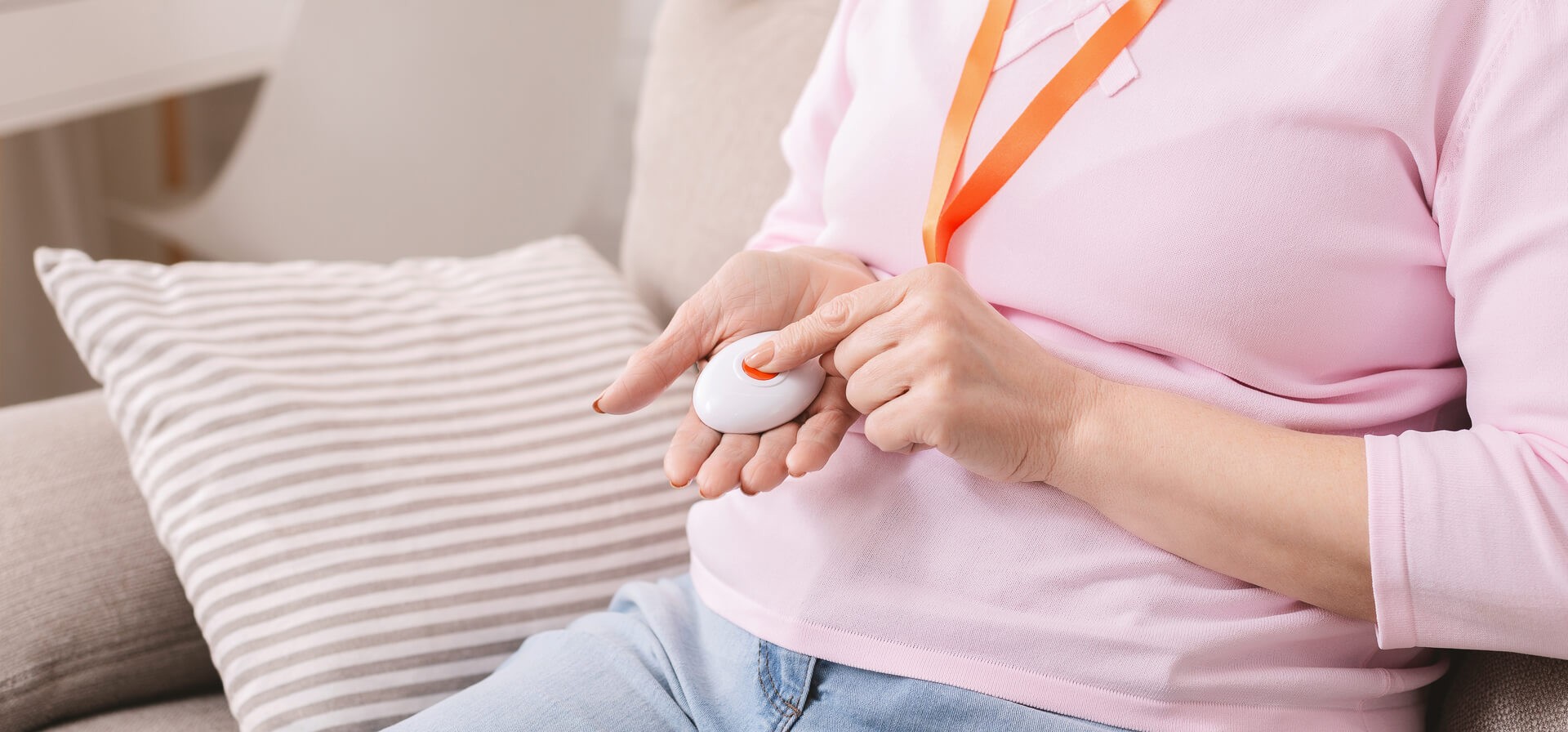Staying safe at home becomes more important for older adults, especially during illness or disability.
Whether a friend or loved one suffers from a neurological condition like Parkinson’s disease or age-related mobility problems, it’s important to take precautions. As we age, we can sometimes experience a decline in mobility, senses, motor skills and difficulty with balance. These changes can affect our our reactions and how we interact with our environment.
Minimising risk around the house can reduce the likelihood of emergencies or accidents that could lead to hospital admissions. Here are some tips to help you stay safe at home:
- Move objects to lower levels: Stretching above head height may be difficult for those with mobility issues while standing on raised platforms can pose a falls risk. Place everyday items within easy reach.
- Tidy leads or cables: An easy way to minimise tripping hazards.
- Stick mats and rugs down or remove them: Mats have a tendency to curl up at the ends or slip on some types of flooring, making them dangerous for those with mobility problems.
- Protect sharp furniture: In some instances, it may be sensible to cover or protect sharp corners or edges, which can easily break fragile skin.
- Ensure all areas are adequately lit: Especially important for those with visual impairment and during the winter months.
- Wear a personal alarm: Often emergencies occur unexpectedly. If a loved one falls and is unable to get off the floor to call for a help, for example, a personal alarm can be vital. They can be used to alert loved ones, care professionals or the health service.
- Big buttoned phone: Useful communication aid for those with sight or dexterity problems.
- Keep emergency contacts on speed dial: For those with memory issues, having pre-set numbers can help them call quickly when needed. You can then affix the speed dial numbers onto the phone as a guide.
- Install a toilet, chair and bed raise if necessary: Many elderly individuals may lack sufficient strength to go from sitting to standing. Raising the height of furniture can assist with such transfers.
- Provide mobility aids on all levels: For those who require a walking stick or zimmer frame, ensure walking aids are available for use on each level of the house.
- Keep ferrules in good condition: If your loved one uses a walking stick, intermittently check the ferrule (rubber ending), which when worn, causes slippage on wet surfaces.
- Ensure appropriate footwear is worn: Many of us wear ill-fitting slippers around the house which poses a significant falls risk for those with mobility issues.
- Ensure stair handrails are secure: Elderly individuals may rely on handrails to compensate for muscular weakness. Consider installing a second stair rail and checking anchor points regularly.
- Consider a walk-in shower if getting in and out of the bath is unsafe: Many elderly individuals may find this a very tricky manoeuvre due to hip pain or dysfunction. Alternatively, a perching stool can be a useful for intermittent, sink based washes.
- Use rubber mats in the shower or bath: Many falls occur in the bathroom due to slipping. Combined with a handrail, your loved one will be able to wash safely.
- Supply a grabber to pick up dropped objects: Bending over to pick up a fallen object can be challenging for elderly individuals with mobility problems. A grabber minimises the risk.
- Teach getting up from the floor: Asking a physiotherapist to assess the need for this manoeuvre can be helpful in emergencies and allow an older adult to call for help.
- Use a commode: The night time can be especially dangerous for the elderly, who may have to get to use the bathroom several times a night. For those with significant mobility problems, having an emergency commode can help reduce any feelings of anxiety.
- Install electric hob instead of gas: Releasing too much gas when lighting the hob or leaving burners on can be an easy mistake. Electric hobs can provide a safer option.
- Use fire precautions: This is not limited to the elderly, but can often be overlooked. Check fire alarms regularly and ensure a fire extinguisher and fire blanket are present.
- Use a medication dispenser: Many elderly relatives and friends experience conditions which require medication at regular intervals. Pre-organising medication for the week can ensure all doses are taken at the correct times.
- Regular vision and hearing checks: If vision and hearing deteriorate, older adults may not see hazards or hear the phone ring. Organising check-ups to change a glasses prescription or renewing a hearing aid can mitigate such issues.
- Keep heatable meals in the freezer: At times there may be gaps in care provision for elderly relatives and friends, in which case access to pre-prepared meals is advisable.
- Organise a regular check-in time: Social interaction is extremely important to counteract any feelings of isolation. If you’re unable to visit your loved one regularly, a quick call at a pre-arranged time can provide piece of mind and alert you to any issues.
- Reduce the water temperature at the boiler: For those with memory issues or fragile skin, preselecting a lower water temperature will avoid burns.
- Use a cordless kettle: Only fill for your immediate needs to avoid accidents with boiling water and potential burns.
- Ensure heating timer is set appropriately at the boiler: Keeping your loved one warm throughout the day is important, especially during cold weather or when mobility issues restrict their movement.
- Limit access to dangerous areas, equipment or chemicals: in cases such as dementia, it may help to remove anything that could cause an accident, paying special attention to basements or sheds with dangerous equipment or chemicals.
- Consider a cordless phone or mobile: This might be useful in emergency situations or prevent accidents while trying to reach the phone quickly.
- Don’t feel pressured by cold callers: Encourage your loved one to contact you if anyone asks for their details or is selling door to door.
- Install home security precautions: Such as door chains, burglar alarms or light sensors.
- Consider motion sensors and trigger alarms: These solutions can work well for those with dementia, providing an alert for wandering behaviour.
- Prepare an emergency kit: This could include first aid supplies, blankets, flashlights and candles. You may also want to keep some dried, energy-rich food and bottled water at home.
- Ensure that a loved one or trusted neighbour had a spare key: In case of emergency, it’s important to gain access to the property quickly. Having a plan in place can save valuable time.
The list above will give you some ideas, although your specific action plan will vary, depending on any illness or disability, whether support is available at home or if a professional care agency is involved.
Also, some of the equipment based suggestions may rely on professional assessment from a physiotherapist or occupational therapist.
Content provided by the Care Workers’ Charity



